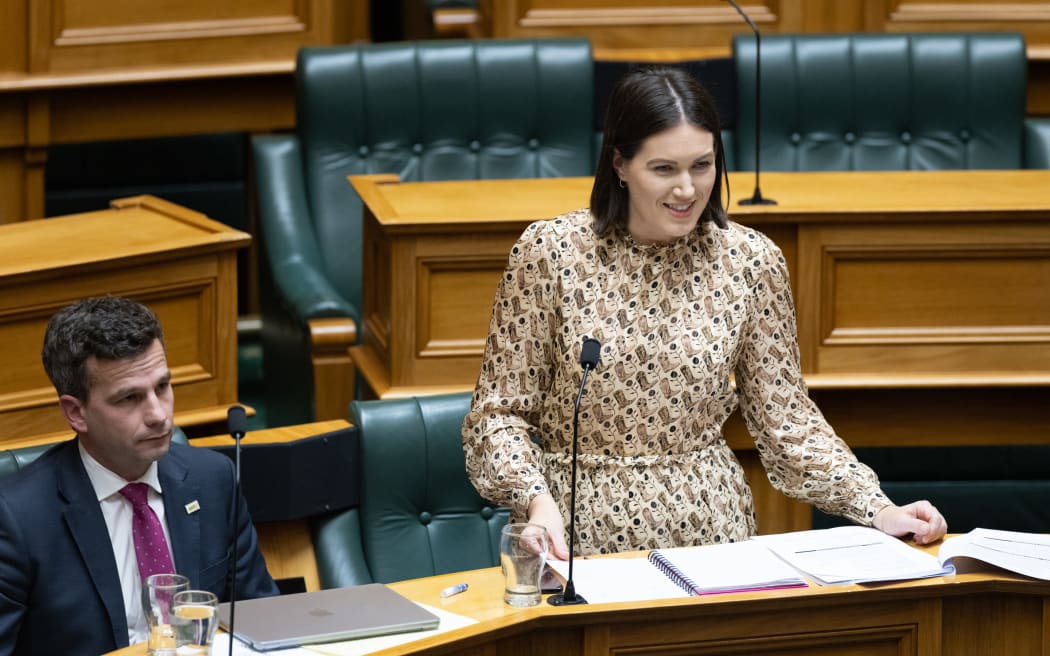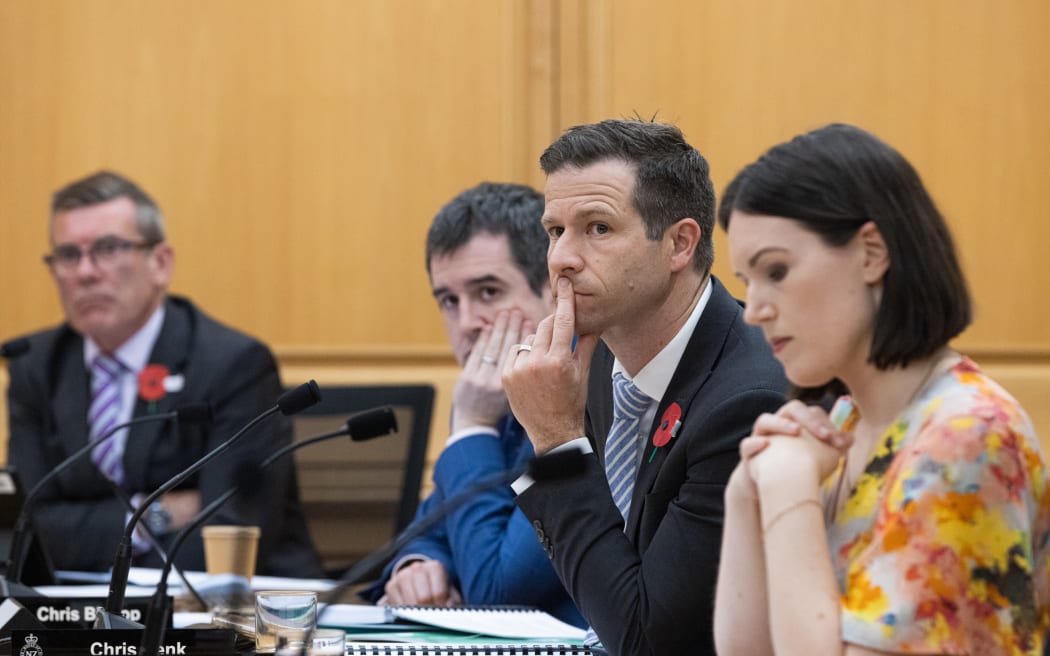Under new rules for Parliament, any future proposed entrenchment of a law must first be considered by a select committee before being considered by all MPs.
Tightening the requirements around entrenchment is one of various changes to the rules for how Parliament runs itself which MPs have settled on following the regular three-yearly review of Parliament’s rules. It culminated in today’s debate on the report of the Standing Orders Committee which has also proposed new levers of scrutiny on the executive at select committee level.

ACT Party MP Brooke van Velden speaks during debate on the report of the Standing Orders Committee, 31 August 2023. Photo: Johnny Blades
Entrenchment refers to a reserved provision in legislation, where more than a majority in Parliament is required in order to overturn that part of the law. New Zealand has very few cases of reserved provisions - they’re confined to constitutional matters, mainly electoral law, and usually set with a 75% threshold.
However, a Government mis-step in a rare use of entrenchment late last year during deliberations on a clause in Water Services legislation suddenly cast the use of entrenchment into the public spotlight. The clause related to a proposed ban on the privatisation of water assets. The Government later cancelled this entrenchment. But the entrenchment issue exercised MPs enough that it prompted them to reopen submissions on the review of Standing Orders to hear views specifically about the use of entrenchment.
The Report of the Standing Orders Committee has now been published, and debated today in Parliament, the last sitting day before the House rises. One of the main proposals is to make the procedural requirements for entrenchment proposals more rigorous in future:
Proposals for entrenchment—prohibiting any proposals for entrenchment being considered in a committee of the whole House without first being considered by a select committee, which must call for submissions and report on the proposal.
Principal Clerk Gabor Hellyer, who has managed the Standing Orders Committee review for 2023, said the new requirements on entrenchment proposals were aimed at “ensuring that there’s sunlight on them, there’s an opportunity for the public to scrutinise them, and if they’ve had that breathing time, then they can proceed”. He described it as an important constitutional change.

MPs in Parliament's Standing Orders Committee hear evidence from a submitter for the 2023 Review of Standing Orders. Photo: VNP / Phil Smith
The Standing Orders Committee’s work on this review reflects a consensus process through which MPs reached broad agreement. This was alluded to during the debate by some members of the Committee.
The ACT Party MP Brooke van Velden said introducing more rigorous requirements regarding entrenchment was a "sensible change".
"That we don't allow the Committee of Whole House to pass a clause with an entrenchment provision without that entrenchment provision being seen and scrutinised by a select committee and having submissions open to members of the public. That should never have happened, in our recent example in this House," she said.
Scrutiny booster
The major theme of the report was strengthening Parliament's capacity for scrutiny of government, including removing two weeks of legislating from the calendar and focussing entirely on reviewing government performance.
The two “scrutiny weeks” each year, will see committee hearings on Estimates and annual reviews taking place instead of the House sitting, with MPs, Ministers, and public sector leaders expected to prioritise these hearings.
There are also new requirements for subject select committees to adopt scrutiny plans for how they will conduct scrutiny activities during the term of Parliament, and for them to report on their implementation of those plans.

